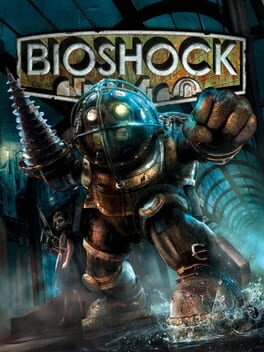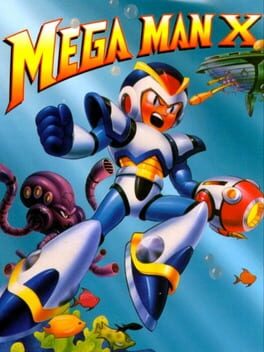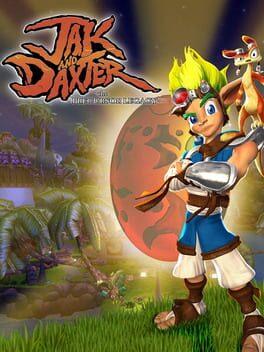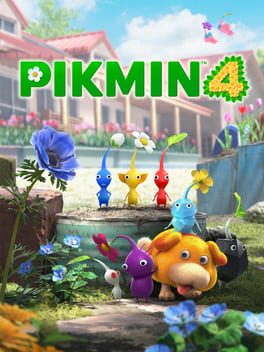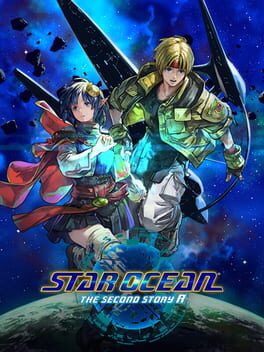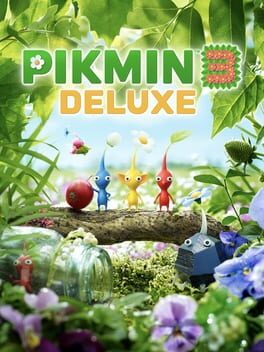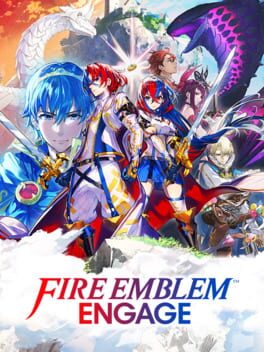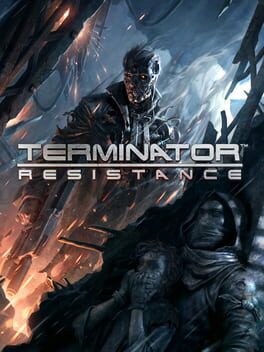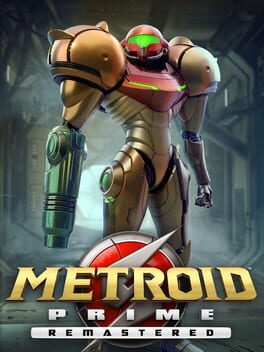inferno60x
Bio
Lawyer by day, Gamer by night. Platinum Trophy chasing and virtual photo taking.
Lawyer by day, Gamer by night. Platinum Trophy chasing and virtual photo taking.
Badges

Replay '14
Participated in the 2014 Replay Event

Popular
Gained 15+ followers

Roadtrip
Voted for at least 3 features on the roadmap

GOTY '23
Participated in the 2023 Game of the Year Event

Loved
Gained 100+ total review likes

1 Years of Service
Being part of the Backloggd community for 1 year

Donor
Liked 50+ reviews / lists

Best Friends
Become mutual friends with at least 3 others

Noticed
Gained 3+ followers

Pinged
Mentioned by another user

Liked
Gained 10+ total review likes

GOTY '22
Participated in the 2022 Game of the Year Event

Gamer
Played 250+ games

N00b
Played 100+ games
Favorite Games
368
Total Games Played
040
Played in 2024
125
Games Backloggd
Recently Played See More
Recently Reviewed See More
As someone incredibly late to the Undertale party, I’m unsure if I can say anything that hasn’t already been said concerning this indie darling by developer Toby Fox. After its release in 2015, Undertale was like the weird kid at school for me - someone I never interacted with, but everyone ended up loving for reasons I couldn’t understand. I heard insane amounts of buzz about the game after its launch, witnessed the screams from fans to put Sans in Super Smash Bros., and watched as fans went mad over the reveal and drop of Deltarune. For some reason, however, I never gave the game a chance until now, nearly a decade after its release. Reviewing the game now, however, feels akin to critiquing a beloved classic.
If anyone reading is unaware, Undertale is a 2D role-playing game where the player controls a child who has fallen into the Underground: a large, secluded region under the surface of Earth, separated by a magical barrier. The player sets out on a quest to return to the surface world and meets a quirky, memorable, and somewhat disturbing cast of characters and enemies along the way. Combat, while somewhat turn-based, takes the form of a bullet-hell ballet where the player controls a heart and attempts to dodge an array of enemy projectiles. When enough damage is taken by the player's heart, the battle ends and the game is over. However, the true innovation lies in the option to completely avoid fighting back through the use of witty dialogue, well-timed item usage, and even acts of kindness. Through these non-lethal means, players can forge unlikely friendships with foes and find a completely different game ending.
Undertale ultimately sets out to draw attention to and circumvent the violence inherent in most RPGs by championing the power of kindness and compassion. Instead of simply powering through every enemy present in the game, leaving a trail of bodies in your wake, and letting your fighting prowess do the talking, Undertale seeks to have players forsake their sword and try to settle their battles through non-lethal and non-conventional means. This circumvention of classic RPG tropes carries through to the narrative as the game boasts three different endings depending on the number of enemies the player has killed.
Overall, Undertale transcends the label of "indie gem." It's a timeless title to gamers now that challenges core RPG mechanics and delivers a narrative that resonates deeply. Whether you're a seasoned gamer like me who simply missed out or a newcomer who just learned about this little indie title, Undertale offers a unique and unforgettable experience. It's a testament to the power of creativity and a reminder that the most profound games can sometimes come in unassuming pixelated packages.
If anyone reading is unaware, Undertale is a 2D role-playing game where the player controls a child who has fallen into the Underground: a large, secluded region under the surface of Earth, separated by a magical barrier. The player sets out on a quest to return to the surface world and meets a quirky, memorable, and somewhat disturbing cast of characters and enemies along the way. Combat, while somewhat turn-based, takes the form of a bullet-hell ballet where the player controls a heart and attempts to dodge an array of enemy projectiles. When enough damage is taken by the player's heart, the battle ends and the game is over. However, the true innovation lies in the option to completely avoid fighting back through the use of witty dialogue, well-timed item usage, and even acts of kindness. Through these non-lethal means, players can forge unlikely friendships with foes and find a completely different game ending.
Undertale ultimately sets out to draw attention to and circumvent the violence inherent in most RPGs by championing the power of kindness and compassion. Instead of simply powering through every enemy present in the game, leaving a trail of bodies in your wake, and letting your fighting prowess do the talking, Undertale seeks to have players forsake their sword and try to settle their battles through non-lethal and non-conventional means. This circumvention of classic RPG tropes carries through to the narrative as the game boasts three different endings depending on the number of enemies the player has killed.
Overall, Undertale transcends the label of "indie gem." It's a timeless title to gamers now that challenges core RPG mechanics and delivers a narrative that resonates deeply. Whether you're a seasoned gamer like me who simply missed out or a newcomer who just learned about this little indie title, Undertale offers a unique and unforgettable experience. It's a testament to the power of creativity and a reminder that the most profound games can sometimes come in unassuming pixelated packages.
Terminator: Resistance is a first-person shooter set in the post-apocalyptic future Los Angeles of the Terminator films. Developed by Teyon and published by Reef Entertainment for PlayStation 4, Windows, and Xbox One in 2019, the game received a next-generation update for PlayStation 5 and Xbox Series in April 2021 and October 2023 respectively. Fans of the Terminator franchise will find a lot to love here – desolate landscapes and ruined cityscapes sell the post-apocalyptic grime of a war-torn future, the iconic T-800s are every bit as menacing as it was on screen in the 1984 film, and a pulse-pounding soundtrack perfectly complements Brad Fiedel's original score. Stepping into the shoes of a Resistance soldier, players take on missions to rescue allies or slow down the ever-evolving and nearly unbeatable onslaught of Skynet machines. Throughout a playthrough, the player can forge alliances with NPCs and make decisions that ripple through the narrative, influencing the fate of certain characters and shaping the game's multiple endings.
Terminator: Resistance (regardless of whether you’re playing the original release or the next-gen update) is a bit rough around the edges with gameplay and a story that doesn't quite measure up to its namesake. The shooting mechanics and enemy AI feel dated, stuck in a bygone era more akin to a first-person shooter from the PlayStation 2. Firefights, while visually entertaining, are repetitive with enemies who are easily outsmarted, outgunned, and outmatched. As a game that seeks to pit the player against a nearly unstoppable AI that has almost exterminated humanity, the enemies in the game are dumb, one-dimensional, and hardly pose a challenge after a certain point. Environments, while decently rendered, are often bland and lack originality. Every mission takes place in an area devoid of life with a gray drab backdrop of destroyed buildings and eroding landscapes. While this is expected given the setting, it doesn’t excuse the amount of re-used assets and textures littered across every map. The story itself, while boasting some intriguing twists on the established lore, fails to capture the same level of depth and emotional weight as the James Cameron films. The alliances made throughout the story culminate in a few decisions that determine whether your friends live or die and the multiple endings are really only two that decides what cutscene you watch. Overall the story's conclusion is fine but anticlimactic and predictable. It doesn’t evoke any emotion whatsoever and just left me to shrug, listen to the Platinum Trophy pop, and watch the credits roll.
So, is Terminator: Resistance worth playing? It depends on what you're looking for. If you crave a Terminator experience and don't mind some B-movie jank, you'll find some fun here blasting Terminators and soaking up the atmosphere in a decent but unpolished game. But if you're looking for a top-tier shooter with innovative gameplay, you might want to steer clear of Skynet and John Connor’s time-traveling shenanigans.
Overall, Terminator: Resistance is a mixed bag. It delivers a faithful recreation of the Terminator universe's atmosphere and has a great soundtrack. However, its derivative shooting mechanics, uninspired enemy AI, and lackluster predictable story hold it back from greatness. Ultimately, whether you enjoy the experience hinges on your expectations. If you prioritize having a decent Terminator-inspired experience over cutting-edge gameplay, then this might be the game for you and you’ll find as much enjoyment here as I did.
Terminator: Resistance (regardless of whether you’re playing the original release or the next-gen update) is a bit rough around the edges with gameplay and a story that doesn't quite measure up to its namesake. The shooting mechanics and enemy AI feel dated, stuck in a bygone era more akin to a first-person shooter from the PlayStation 2. Firefights, while visually entertaining, are repetitive with enemies who are easily outsmarted, outgunned, and outmatched. As a game that seeks to pit the player against a nearly unstoppable AI that has almost exterminated humanity, the enemies in the game are dumb, one-dimensional, and hardly pose a challenge after a certain point. Environments, while decently rendered, are often bland and lack originality. Every mission takes place in an area devoid of life with a gray drab backdrop of destroyed buildings and eroding landscapes. While this is expected given the setting, it doesn’t excuse the amount of re-used assets and textures littered across every map. The story itself, while boasting some intriguing twists on the established lore, fails to capture the same level of depth and emotional weight as the James Cameron films. The alliances made throughout the story culminate in a few decisions that determine whether your friends live or die and the multiple endings are really only two that decides what cutscene you watch. Overall the story's conclusion is fine but anticlimactic and predictable. It doesn’t evoke any emotion whatsoever and just left me to shrug, listen to the Platinum Trophy pop, and watch the credits roll.
So, is Terminator: Resistance worth playing? It depends on what you're looking for. If you crave a Terminator experience and don't mind some B-movie jank, you'll find some fun here blasting Terminators and soaking up the atmosphere in a decent but unpolished game. But if you're looking for a top-tier shooter with innovative gameplay, you might want to steer clear of Skynet and John Connor’s time-traveling shenanigans.
Overall, Terminator: Resistance is a mixed bag. It delivers a faithful recreation of the Terminator universe's atmosphere and has a great soundtrack. However, its derivative shooting mechanics, uninspired enemy AI, and lackluster predictable story hold it back from greatness. Ultimately, whether you enjoy the experience hinges on your expectations. If you prioritize having a decent Terminator-inspired experience over cutting-edge gameplay, then this might be the game for you and you’ll find as much enjoyment here as I did.
The original Metroid Prime was released nearly 22 years ago on November 18, 2002, exclusively for the Nintendo GameCube. As the first Metroid title to utilize 3D graphics and a first-person perspective, the game catapulted the Metroid series back into the limelight after an eight-year hiatus following the release of Super Metroid in 1994. Universally praised and the winner of multiple Game of the Year awards, the success of Metroid Prime was followed by two direct sequels in Metroid Prime 2: Echoes and Metroid Prime 3: Corruption along with three spin-off titles in Metroid Prime Pinball, Metroid Prime Hunters, and Metroid Prime: Federation Force. While fans await the fourth entry in the series (whenever it may be released), Nintendo, Retro Studios, and Iron Galaxy Studios game together to give fans an updated recreation in February 2023. The Metroid Prime Remaster is a faithful remake of the beloved 2002 game bringing Samus Aran's hunt on Tallon IV to the Nintendo Switch. This remaster goes beyond a simple coat of paint, offering a significant visual upgrade, improved controls, and the same immersive atmosphere that captivated players two decades ago.
The biggest obvious improvement in Metroid Prime Remastered is the graphical overhaul. While the original looked fantastic by 2002 GameCube standards, the remaster sets a new bar for the series going forward. Not only does Samus’ suit and various visors look fantastic whether handheld or docked, but every environment from the original has been painstakingly recrafted to push the Switch to its limits. From the Phazon Mines to the Chozo Ruins, everything is brimming with detail. Textures are sharp, lighting effects are impressive, and the alien world of Tallon IV feels even more alive and dangerous than it did two decades ago. Whether you're gazing across the vast snowy expanse of the Phendrana Drifts, navigating the claustrophobic corridors of the Frigate Orpheon, blasting through Space Pirates, or starring up at the rainy sky of Tallon IV, Prime has never looked this good.
Thankfully, the core gameplay of Metroid Prime Remastered remains exceptional and largely unchanged in the remaster. You still explore the expansive labyrinthine world of Tallon IV, unlocking old abilities like the Morph Ball, Grapple Beam, and Power Bombs, alongside new ones like the Phazon Beam that allows for easier backtrack and the uncovering of secrets. The lock-on mechanic and visor scanning system are as intuitive as ever, making combat against the hostile wildlife and Space Pirates both strategic and satisfying. The remaster also offers the option for both traditional and dual-stick control schemes, making the game more approachable for newcomers to the first-person adventure. As someone who played the original, I welcome these control scheme changes as the dual analog sticks available on the Switch make the game far easier to control.
A sense of isolation and environmental storytelling have been hallmarks of the Metroid series since the first game released in 1986. The original release of Prime already did a fabulous job at this, and nothing was dumb downed or removed for the remaster. Scanning the environment still uncovers lore entries that piece together the history of Tallon IV, the enigmatic Chozo civilization, and the Space Pirates' nefarious plans. The haunting soundtrack, untouched from the original release, is still excellent, and adds to the suspenseful atmosphere and sense of dread as you delve deeper into the planet's mysteries and uncover the titular Metroid Prime.
While Metroid Prime Remastered excels in most areas, it's not without a few shortcomings that also plagued the original (and many Metroid games in my opinion). The game's world design can be obtuse at times, with some areas lacking clear direction on where to go next. Without a guide (which I am not ashamed to admit I used) this can lead to moments of frustration for players, especially those unfamiliar with the original or who haven’t played in since 2002. Additionally, the lack of significant additions beyond the graphical and control improvements may leave some players who have already experienced the original wanting more.
Despite these minor shortcomings, Metroid Prime Remastered is an outstanding remaster that breathes new life into a classic. The enhanced visuals, improved controls, and timeless gameplay make it a must-play for both Metroid veterans and newcomers to the franchise. Whether you're revisiting Tallon IV or exploring it for the first time, Metroid Prime Remastered is an unforgettable adventure that stands as a testament to the enduring legacy of the series.
The biggest obvious improvement in Metroid Prime Remastered is the graphical overhaul. While the original looked fantastic by 2002 GameCube standards, the remaster sets a new bar for the series going forward. Not only does Samus’ suit and various visors look fantastic whether handheld or docked, but every environment from the original has been painstakingly recrafted to push the Switch to its limits. From the Phazon Mines to the Chozo Ruins, everything is brimming with detail. Textures are sharp, lighting effects are impressive, and the alien world of Tallon IV feels even more alive and dangerous than it did two decades ago. Whether you're gazing across the vast snowy expanse of the Phendrana Drifts, navigating the claustrophobic corridors of the Frigate Orpheon, blasting through Space Pirates, or starring up at the rainy sky of Tallon IV, Prime has never looked this good.
Thankfully, the core gameplay of Metroid Prime Remastered remains exceptional and largely unchanged in the remaster. You still explore the expansive labyrinthine world of Tallon IV, unlocking old abilities like the Morph Ball, Grapple Beam, and Power Bombs, alongside new ones like the Phazon Beam that allows for easier backtrack and the uncovering of secrets. The lock-on mechanic and visor scanning system are as intuitive as ever, making combat against the hostile wildlife and Space Pirates both strategic and satisfying. The remaster also offers the option for both traditional and dual-stick control schemes, making the game more approachable for newcomers to the first-person adventure. As someone who played the original, I welcome these control scheme changes as the dual analog sticks available on the Switch make the game far easier to control.
A sense of isolation and environmental storytelling have been hallmarks of the Metroid series since the first game released in 1986. The original release of Prime already did a fabulous job at this, and nothing was dumb downed or removed for the remaster. Scanning the environment still uncovers lore entries that piece together the history of Tallon IV, the enigmatic Chozo civilization, and the Space Pirates' nefarious plans. The haunting soundtrack, untouched from the original release, is still excellent, and adds to the suspenseful atmosphere and sense of dread as you delve deeper into the planet's mysteries and uncover the titular Metroid Prime.
While Metroid Prime Remastered excels in most areas, it's not without a few shortcomings that also plagued the original (and many Metroid games in my opinion). The game's world design can be obtuse at times, with some areas lacking clear direction on where to go next. Without a guide (which I am not ashamed to admit I used) this can lead to moments of frustration for players, especially those unfamiliar with the original or who haven’t played in since 2002. Additionally, the lack of significant additions beyond the graphical and control improvements may leave some players who have already experienced the original wanting more.
Despite these minor shortcomings, Metroid Prime Remastered is an outstanding remaster that breathes new life into a classic. The enhanced visuals, improved controls, and timeless gameplay make it a must-play for both Metroid veterans and newcomers to the franchise. Whether you're revisiting Tallon IV or exploring it for the first time, Metroid Prime Remastered is an unforgettable adventure that stands as a testament to the enduring legacy of the series.
